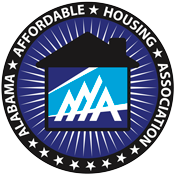Consolidated Appropriations Act for FY 2017 Clears Congress

CARH’S BROADCAST E-MAIL – Legislative Update
May 4, 2017
On May 3, the House of Representatives, by a vote of 309-118, passed and sent to the Senate the Consolidated Appropriations Act for FY 2017. The Senate earlier today passed the bill, by a vote of 79-18, thereby again averting a shut-down of the government. It is expected that President Trump will sign the bill into law prior to the current Continuing Resolution (CR) expires on Friday, May 5. The legislation is a $1.07 trillion spending bill that will keep the government and programs funded through September 30, 2017.
As has been reported in previous broadcast emails (April 22, 2016, October 4, 2016), there were very few differences between the House and Senate Appropriations bills (H.R. 5054 and S. 2956) for the United States Department of Agriculture’s (USDA) Rural Development (RD) housing programs. In March, the Trump Administration had recommended a series of cuts in program funding levels for FY 2017, including a $50 million cut in Rental Assistance. These proposed cuts were not accepted by the Congress.
The attached charts show the level of funding for both RD’s housing programs and the Department of Housing and Urban Development (HUD). Highlights for RD include: $1.405 billion for the Section 521 Rental Assistance program, an increase of $15 million over the FY 2016 budget. There is report language also requiring that RD report to Congress, within four months of enactment of the legislation, a detailed analysis of the accuracy of the project-based forecasting tool that is now being used by the agency to estimate rental assistance needs.
The Multifamily Preservation Revitalization (MPR) demonstration program will be funded at $41.4 million, of which $19.4 would be available for Section 542 vouchers and $22 million for preservation and revitalization funds for the existing portfolio. The Section 538 Guaranteed Rural Rental Housing program would have a budget authority level of $230 million, an increase of $80 million over the FY 2016 level. The funding level is an acknowledgement by Congress that the Section 538 program is a successful program and has been an important vehicle for financing of both new and preservation of the existing portfolio. The Section 515 program would be funded at $35 million, $8 million above the FY 2016 level. There is statutory demonstration language to support the $1 million pilot program RD announced to encourage non-profits to develop procedures for dealing with the maturing Section 515 mortgages. Congress has included bill language which specifically tells the agency to make changes in its September 16, 2016 Unnumbered Letter – Pilot Program to Promote Non-Profit Participation in Transactions to Retain the Section 515 Portfolio – and work with outside groups so that the pilot program actually works and also maximizes research benefits.
Turning to HUD’s programs, the FY 2017 Omnibus bill would fund most activities at or above the FY 2016 levels of funding. Again, the Trump Administration’s proposed cuts for HUD in FY 2017, were rejected by the House and Senate in the Omnibus bill. Some of the highlights for HUD programs include the following: Tenant-Based Rental Assistance would be $20.292 billion; Project-Based Rental Assistance would be $10.816 billion to renew project-based assistance contracts. This is an increase of $186 million from the FY 2016 funding level. The number of public housing units that can convert under the Rental Assistance Demonstration (RAD) program would be increased from 185,000 to 225,000. The bill would also extend the program’s sunset date to 2020. Under RAD, public housing agencies are able to leverage public and private debt and equity, largely through Housing Credits, in order to rehabilitate public housing stock and make capital improvements.
The HOME program would be funded at $950 million, the same level of funding as FY 2016. The bill also provides a four-year suspension of the 24-month funding commitment deadline under the HOME program. This language is identical to an amendment offered by Senators Dianne Feinstein (D-CA) and Rob Portman (R-OH) that was accepted onto the Senate bill by voice vote during consideration of the stand-alone Transportation-Department of Housing and Urban Development (T-HUD) Appropriations bill for FY 2017 (S.2844). Because of the additional requirements on project selection, underwriting standards, and developer capacity under the HOME program, many communities have struggled to meet the two-year commitment deadline, which led to funding being lost. This language removes this barrier while keeping in place other, more meaningful deadlines. The Community Development Block Grant (CDBG) program would be funded at $3 billion, again the same level as in FY 2016.
For contact information for your Senators, click here, and for your Representatives, click here.
Additionally, if you have a Twitter account, we encourage you to send a Direct Message to your members of Congress to express your concerns about any reduction in funding for affordable housing programs in FY 2018. Members and their staff follow their Twitter pages closely. Please note, the more “personal” you make your message, the better received your message will be.
If you have any questions or comments, please contact CARH at 703-837-9001 or carh@carh.org.
You must be logged in to post a comment.

+ There are no comments
Add yours